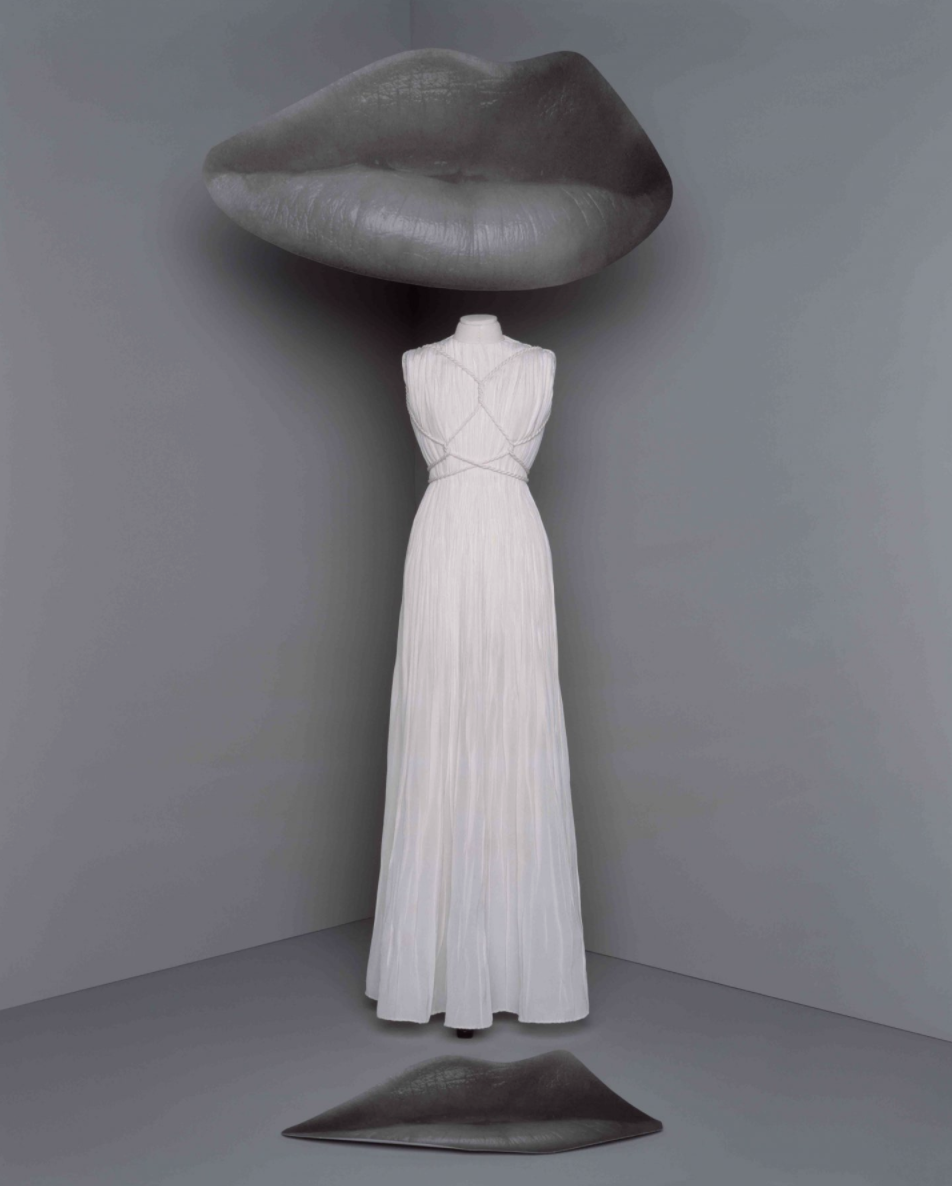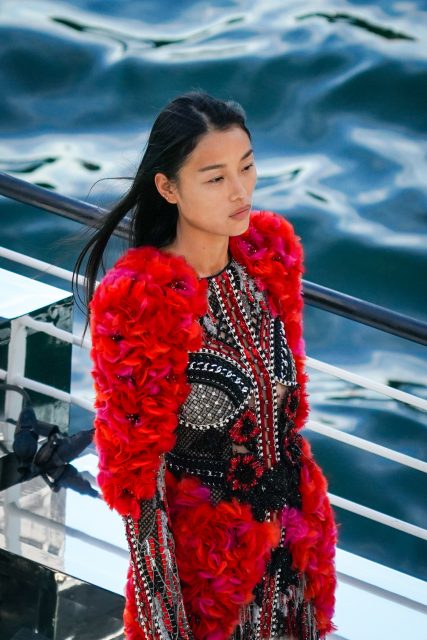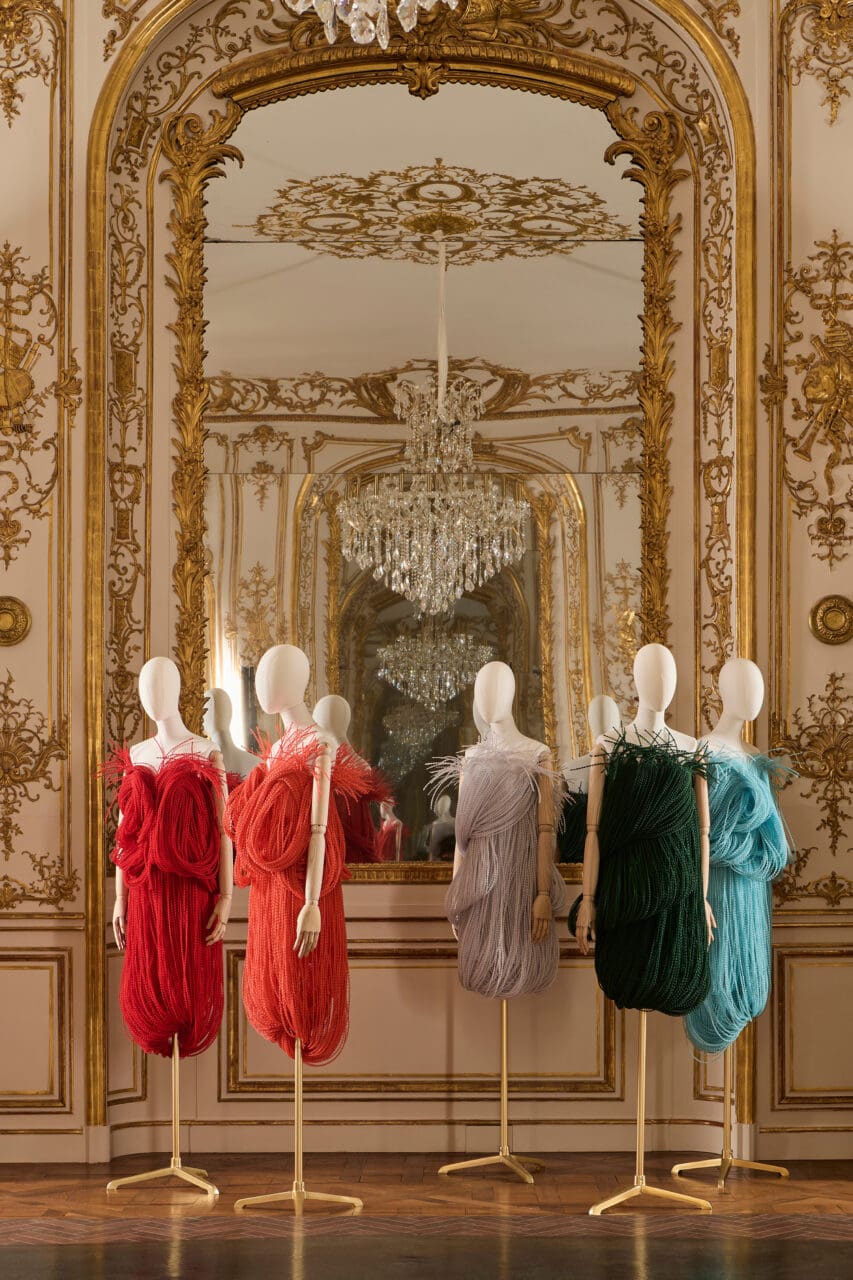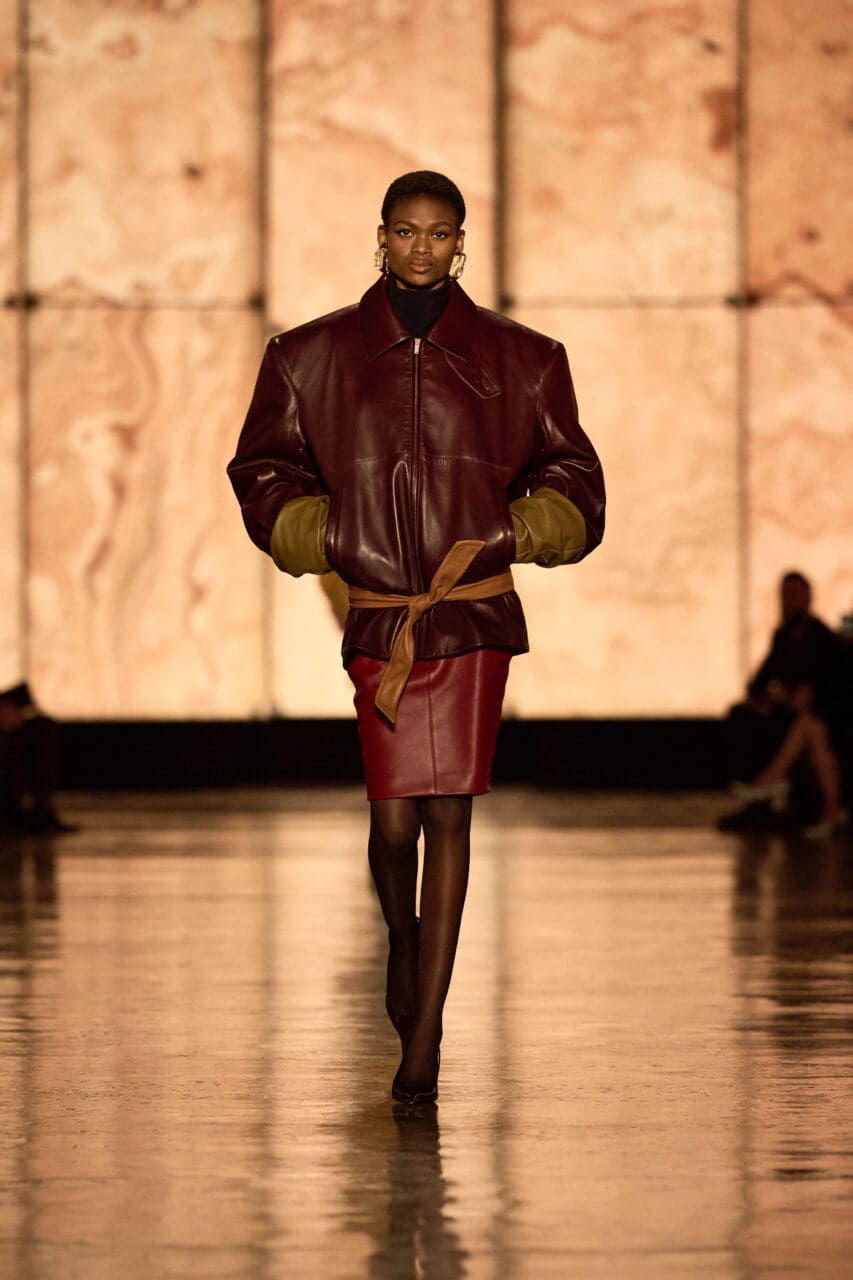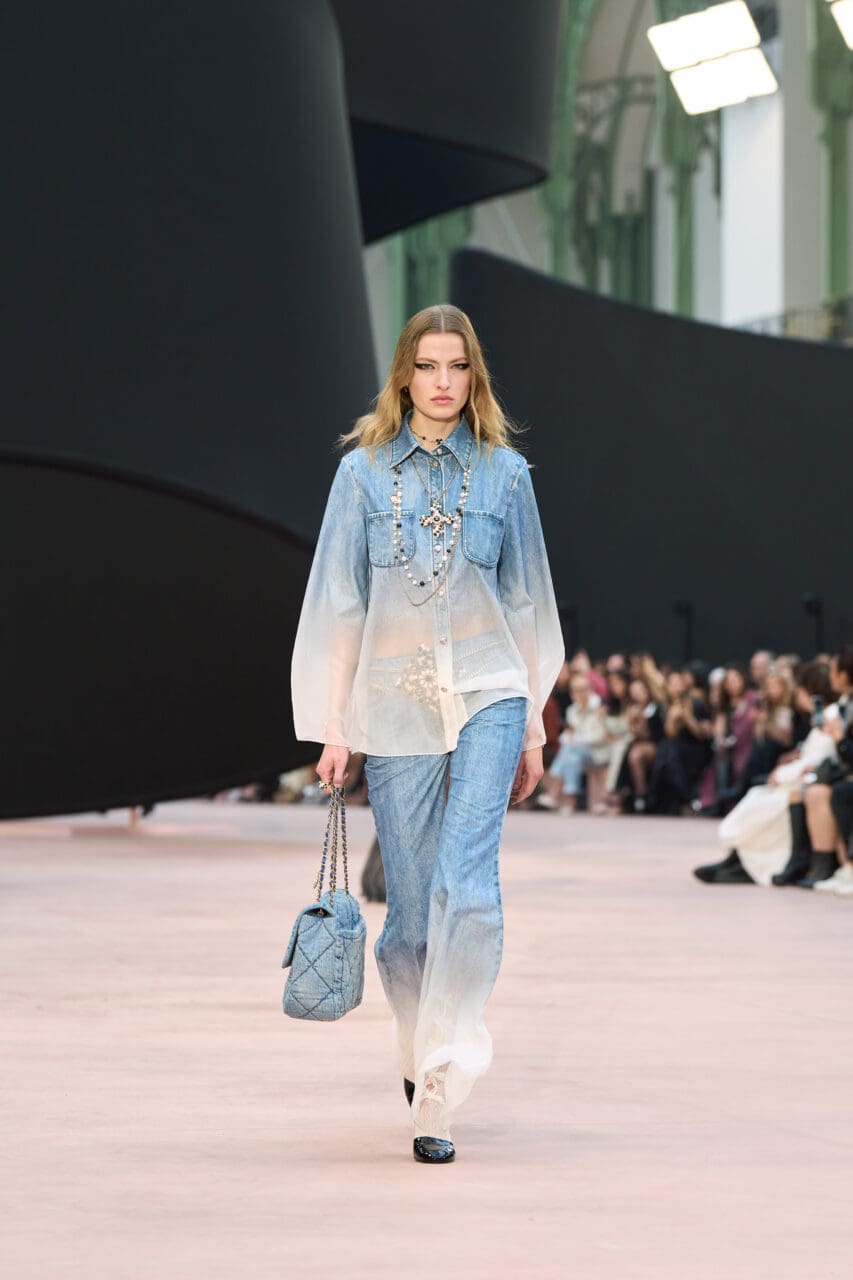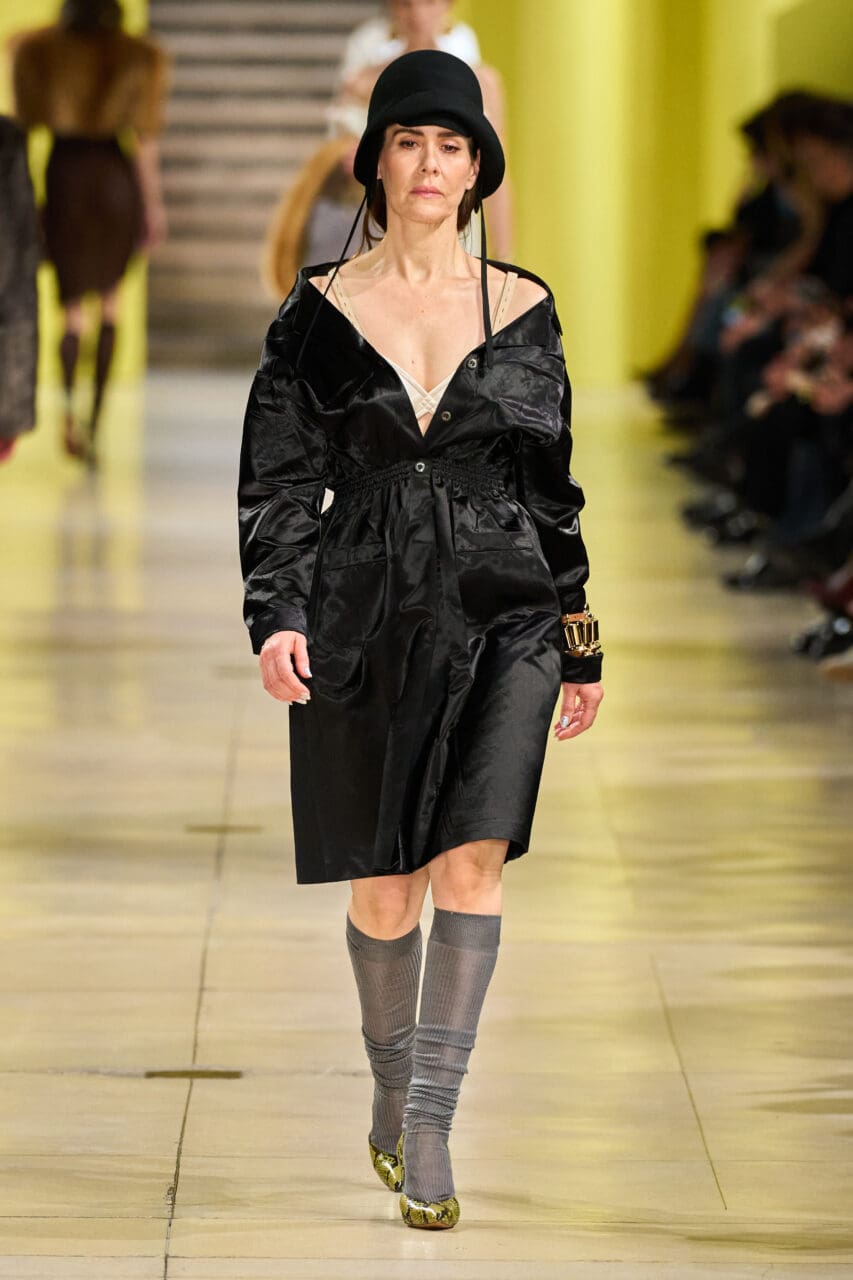There was no traffic jam on the rue de Varenne, no walk through the Rodin Museum, no scrum of street style photographers waiting in its Garden of Orpheus, and certainly no giant tent behind it. Le confinement made the staging of a Christian Dior haute couture show and the experiencing of its grand rituals impossible. Instead, last Friday, Maria Grazia Chiuri was booked solid with Zoom calls. “It’s our first couture presentation online, so it’s something very unusual,” she said.
Chiuri enlisted her friend Matteo Garrone, the Italian filmmaker who directed last year’s Pinocchio, to create a short surrealist movie titled Le Mythe Dior. With no runway to design for, Chiuri’s concept for the season was Théâtre de la Mode. In 1945, amid the devastation of World War II and with materials in short supply, Paris designers created clothes for doll forms one-third the size of their human female counterparts. Miniature dresses and tailleurs by 60 French couturiers and their mannequins were displayed at the Louvre and the exhibition was such a marvel—the clothes and accessories were made with such exacting care, with functioning buttons and handbags filled with tiny wallets and powder compacts—it went on to tour the world, raising funds for French war survivors in the process.
During the Zoom preview, Chiuri’s creations were displayed in a prodigious trunk on mannequins, which is how Dior couture clients around the globe will engage with them. Like the “Théâtre de la Mode” wonders of 75 years ago, Chiuri’s scaled-down day looks and gowns were painstakingly made. They truly give the term petite mains new meaning, but she reported that the task this season brought her team and the Dior studio workers—all working from home and all connecting via phone call or video conference during the shutdown—a lot of joy. “The project was very positive,” she said. “Seeing the first prototype, there was a strong spirit of community.” Doll-size clothes are fairly irresistible, as Garrone’s fantasia aims to demonstrate—even a statue can’t resist their allure. But the rewards of satisfying work can’t be underestimated and the movie’s scenes of Dior artisans and seamstresses lovingly filmed working behind the scenes are equally compelling. Amidst the crushing unemployment of COVID-19 time, even more so.
Chiuri’s “muses” this season seem chosen with that notion in mind. On the call she name-checked the likes of Lee Miller, Dora Maar, and Jacqueline Lamba—20th-century women who are often remembered by history for their beauty or for their famous lovers and husbands, but in fact did important work of their own as artists. Chiuri’s own work for Dior is unmistakable, even at one-third size: The diaphanous gowns—in embroidered tulle, in pleated chiffon, in meticulously patch-worked pastel lace—are fairy tales come to life.
In Le Mythe Dior, couriers bring a trunk of shrunken clothes to the woods. In this fairy tale, the magic that transforms them into real garments is the couture atelier, and the nymphlike protagonists get to keep the dresses. Reality intrudes, though. The narrowness of the film’s cast illustrates that when it comes to fashion and the inclusiveness of intersectional feminism, there’s work yet to be done.
Previously published on US Vogue
Editor
Nicole Phelps